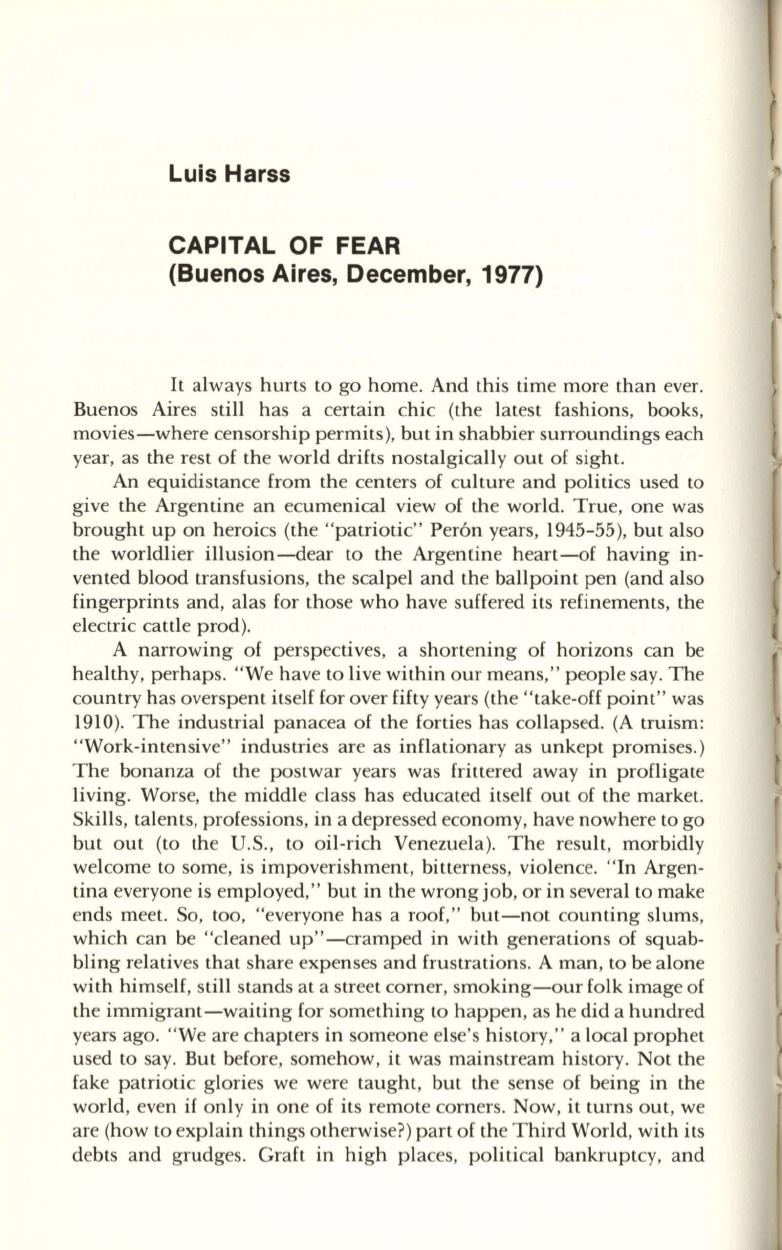
Luis Harss
CAPITAL OF FEAR
(Buenos Aires, December, 1977)
It
always hurts to go home. And this time more than ever.
Buenos Aires still has a certain chic (the latest fashions, books,
movies-where censorship permits), but in shabbier surroundings each
year, as the rest of the world drifts nostalgically out of sight.
An equidistance from the centers of culture and politics used to
give the Argentine an ecumenical view of the world. True, one was
brought up on heroics (the "patriotic" Peron years, 1945-55), but also
the worldlier illusion-dear to the Argentine heart-of having in–
vented blood transfusions, the scalpel and the ballpoint pen (and also
fingerprints and, alas for those who have suffered its refinements, the
electric cattle prod).
A narrowing of perspectives, a shortening of horizons can be
healthy, perhaps. "We have to live within our means," people say. The
country has overspent itself for over fifty years (the "take-off point" was
1910). The industrial panacea of the forties has collapsed. (A truism:
"Work-intensive" industries are as inflationary as unkept promises.)
The bonanza of the postwar years was frittered away in profligate
living. Worse, the middle class has educated itself out of the market.
Skills, talents, professions, in a depressed economy, have nowhere to go
but out (to the U.S., to oil-rich Venezuela). The result, morbidly
welcome to some, is impoverishment, bitterness, violence. "In Argen–
tina everyone is employed," but in the wrong job, or in several to make
ends meet. So, too, "everyone has a roof," but-not counting slums,
which can be "cleaned up" -cramped in with generations of squab–
bling relatives that share expenses and frustrations . A man, to be alone
with himself, still stands at a street corner, smoking-our folk image of
the immigrant-waiting for something to happen, as he did a hundred
years ago. "We are chapters in someone else's history, " a local prophet
used to say. But before, somehow, it was mainstream history. Not the
fake patriotic glories we were taught, but the sense of being in the
world, even if only in one of its remote corners. Now, it turns out, we
are (how to explain things otherwise?) part of the Third World, with its
debts and grudges. Graft in high places, political bankruptcy, and


